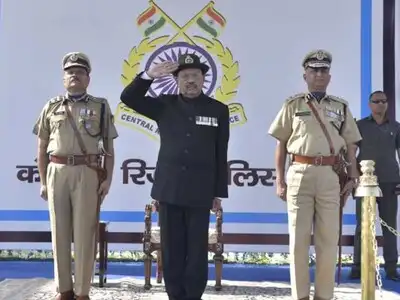
Introduction
Ajit Doval is one of India’s most influential security strategists and intelligence officers. Known for his covert operations, counterterrorism expertise, and role as India’s National Security Advisor (NSA), Doval has played a pivotal role in shaping the country’s defense and intelligence framework. His career spans decades of undercover intelligence work, counterinsurgency operations, and high-stakes negotiations.
Early Career in Police and Intelligence
Joining the Indian Police Service (IPS) – 1968
Ajit Doval began his career in 1968 as an IPS officer in the Kerala cadre. However, his exceptional analytical skills and strategic thinking soon led him to the world of intelligence operations. He joined the Intelligence Bureau (IB), India’s premier internal intelligence agency, where he worked extensively on counterterrorism and national security.
Major Intelligence Operations
1. Undercover Operations in Pakistan
One of Ajit Doval’s most remarkable achievements was his seven-year undercover mission in Pakistan. He operated as an intelligence officer, gathering crucial information about Pakistan’s military strategies, terrorist networks, and geopolitical maneuvers. His deep infiltration into hostile environments earned him the reputation of “India’s James Bond”.
2. Mizoram and Punjab Insurgency Handling
Mizo National Front (MNF) Surrender – 1986
Doval played a crucial role in negotiating with the Mizo National Front (MNF) rebels, leading to their historic surrender in 1986. His diplomatic skills and strategic negotiations helped bring peace to the insurgency-hit region of Mizoram.
Countering Khalistani Terrorism in Punjab
During the peak of Khalistani militancy in Punjab, Ajit Doval was actively involved in covert intelligence operations against terrorist groups. His intelligence-gathering skills helped Indian security forces neutralize several threats and curb separatist movements.
3. Operation Black Thunder (1988)
Ajit Doval played a key role in Operation Black Thunder (1988), a major counterterrorism operation conducted at the Golden Temple in Amritsar. His intelligence inputs were critical in planning the mission, which successfully removed militants holed up in the temple without causing excessive collateral damage.
4. Kandahar Hijacking Crisis (1999)
One of the most high-profile hostage crises in Indian history, the Kandahar hijacking (IC-814) in 1999, saw Ajit Doval as one of the key negotiators. The Indian Airlines plane was hijacked and taken to Afghanistan’s Kandahar, then controlled by the Taliban. Doval’s expertise in negotiation was vital in securing the safe release of passengers, although it required the release of terrorists in exchange.
Director of Intelligence Bureau (2004–2005)
Appointment as IB Chief
In 2004, Ajit Doval became the Director of the Intelligence Bureau (IB), making him the chief of India’s internal intelligence operations.
Kirti Chakra Award
Ajit Doval is the first police officer in India to receive the Kirti Chakra, one of the country’s highest gallantry awards, usually reserved for military personnel. His contributions to national security, counterinsurgency operations, and intelligence missions earned him this prestigious honor.
Post-Retirement and National Security Advisor (NSA) Role
Retirement from IB – 2005
Ajit Doval retired from the Intelligence Bureau in 2005, but his involvement in security and defense matters did not end there. He remained active in strategic policy discussions and national security advocacy.
Appointment as National Security Advisor (NSA) – 2014
In May 2014, after Narendra Modi became Prime Minister, Ajit Doval was appointed as India’s National Security Advisor (NSA). As NSA, he has played a key role in shaping India’s counterterrorism policies, strategic defense operations, and foreign policy strategies.
Key National Security Achievements as NSA
1. Planning the 2016 Surgical Strikes
Following the Uri terrorist attack in 2016, Ajit Doval was instrumental in planning India’s surgical strikes across the Line of Control (LoC) against terrorist camps in Pakistan-occupied Kashmir (PoK). These strikes demonstrated India’s offensive defense strategy and marked a major shift in India’s counterterrorism approach.
2. Role in the 2019 Balakot Airstrikes
After the Pulwama terror attack (2019), Ajit Doval played a crucial role in strategizing and overseeing India’s Balakot airstrikes. The Indian Air Force conducted precision strikes on terrorist camps in Balakot, Pakistan, sending a strong message against cross-border terrorism.
Conclusion
Ajit Doval’s career in police, intelligence, and national security has made him one of India’s most formidable security strategists. His expertise in counterterrorism, intelligence gathering, and strategic operations has been instrumental in strengthening India’s national security framework.
From undercover missions in Pakistan to handling insurgencies in Punjab and Mizoram, and from negotiating hostage crises to planning military operations like the surgical strikes and Balakot airstrikes, Doval’s contributions are unparalleled. As India’s National Security Advisor, he continues to shape the country’s defense policies and security strategies, ensuring India’s safety and sovereignty.
Reference Websites
- Ministry of Home Affairs (India) – www.mha.gov.in
- Intelligence Bureau (IB) India – www.mea.gov.in
- The Economic Times – www.economictimes.indiatimes.com
- Times of India – www.timesofindia.indiatimes.com
- The Hindu – www.thehindu.com